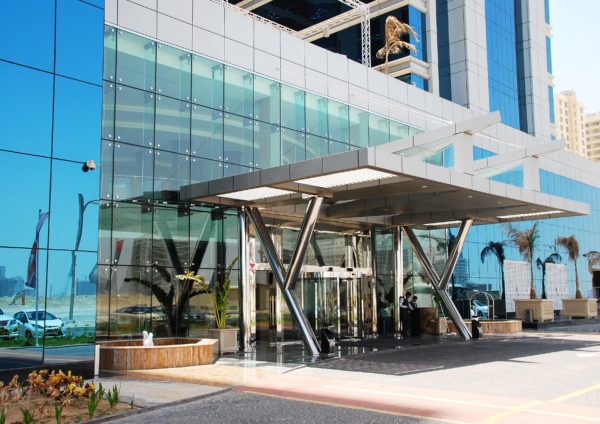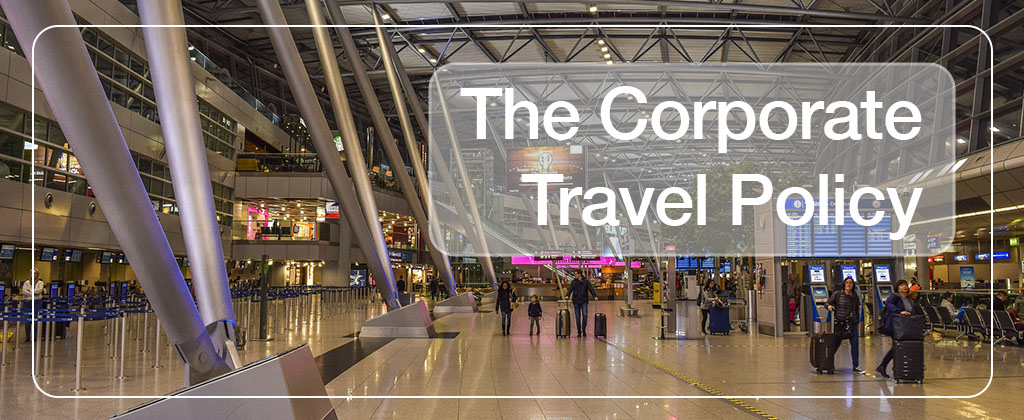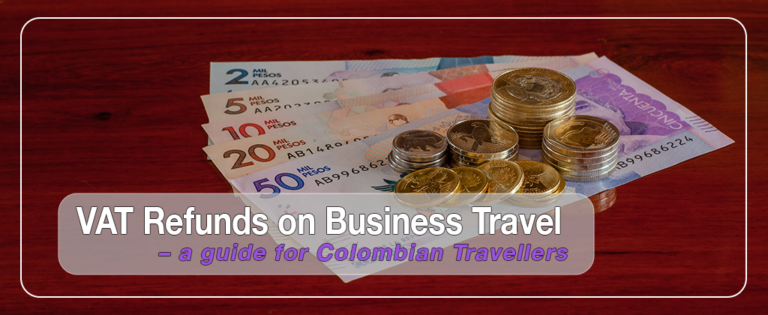One document that is very important for smooth business travel, and the safety and comfort of employees, is the Corporate Travel Policy document. It is the central document that dictates how different parts of the company adhere to the policies and guidelines of the company when it comes to travel for and on behalf of the company. It can make all the difference between a successful business trip, and a frustrated traveller who just wants to get home. Let us look into how we can write an effective Corporate Travel Policy, in detail.
What is a Corporate Travel Policy?
A Corporate Travel Policy document lays out the rules for corporate travel that employees of a company need to follow. It ensures that travel for, and on behalf of the company, is handled in sync with the vision of the company, and uniformly across the board. Proper enforcement of the Corporate Travel Policy will ensure that all business travel delivers to the financial goals of the company effectively, and with little hassle.
Why Large Companies Need A Travel Policy

Large companies need a comprehensive Corporate Travel Policy for sure. However, small and medium-sized companies (SMEs), may not need such a policy. For SMEs, a Travel Policy Document may be overkill.
Smaller travel budgets may easily be handled with a few rules and regulations, while larger corporations, with interests and involvement in different countries, with multi-million dollar travel budgets, cannot do without a Travel Policy.
A well-written and effectively implemented Travel Policy can save a multinational hundreds of thousands of dollars.
Having said that, you must note that with the advent of Artificial Intelligence (AI), there is change in the air. The entire process of writing a Travel Policy and implementing it will change.
I have seen some good travel policies. I have seen many that are just average. I have also seen travellers abusing the Travel Policy with some going around the travel policy to suit their own self-perceived lifestyles. It happens when there is no total buy-in with regard to a company’s rules and regulations; often in large corporations. Let us look at what will be a good Travel Policy in more detail.
Who Should Write The Corporate Travel Policy?
The first question many companies ask is who should write the Travel Policy. The short answer is that people who do not know much about the Travel Industry should not be involved in writing the Policy. While several people in the company may qualify to write the Travel Policy, we feel that it is best left to the Company’s Travel Manager or a professional Corporate Travel Consultant. Let’s outline the reasons why.

I have seen many companies leaving it to the Procurement Department. Simply because they are in charge of buying everything for the company: whether it is goods or services. However, very few good policies originate in that department. I do not in any way underestimate their capabilities. I have met many good and capable Procurement Managers, but my contention is that it is not really under their purview to write the Travel Policy. It cannot be their job.
Some companies seem to get the Human Resources (HR), department to write the Policy. Of course, they deal with employees who travel; but it does not mean they should be tasked with writing the Policy.
Some companies try the ‘copy/paste,’ approach. They use their contacts, or their financial accounting firms, to get hold of some sample Travel policies, make a few modifications and publish their own Travel Policy. Personally, I do not favour a complete ‘copy/paste’ approach, because what applies to Company A may not apply to Company B.
The Travel Manager Should Write the Travel Policy
If I were the CEO of a progressive company, I would call my Travel Manager and make it his or her responsibility. I will however ask the person to create the document in consultation with me and also with HR, Finance and Procurement departments. It is important to have the input of the CEO because he or she may often be the only one who has a total vision of the course charted for the Company, its goals and objectives.
HR, because they are involved in all things to do with employees, Procurement, because they are often involved in various Request For Proposals (RFPs), and Finance because they are the ones who will deal with things financial including all payments and reimbursements of expenses incurred on a business trip.

Why should it be part of the Travel Manager’s job? Simply because that person will know Travel well. Writing a Travel Policy requires an in-depth knowledge of Corporate Travel and its various nuances. It will include first-hand knowledge of Air Travel booking processes and documentation.
Negotiations with hotels and other suppliers that affect Corporate travel will also come into play. Ultimately it will be the Travel Manager who implements the Policy, and implementing it well will produce good results all around.
Get an Experienced Travel Consultant to Write the Policy
Alternatively, a company could get an experienced Corporate Travel Consultant with experience to work with the Travel Manager to draft the Travel Policy. Coromandel SAS handles the writing of such policies. Please contact us, and we will be happy to guide you through the process.
Define The Objectives Of The Corporate Travel Policy
It is recommended that the objectives of the Travel Policy be clearly defined. These objectives should be seen at the very beginning of the Policy. It can contain:
- A clear statement of what the company’s Travel Objectives are.
- What the company hopes to achieve, and through what means.
- It would be useful also to highlight policies of safety, health, and environment in this section.
Consider Employee Needs

While creating a Travel Policy, employee needs should be taken into account. For instance, it will not be in the best interest of a company to insist on a traveller changing flights at a midway point and making a 6 hours journey into a 14 hours odyssey, just because such a trip would cost less.
A tired employee will not be able to perform well at his destination which could negatively affect the Company. There really is no harm in pampering the traveller a little as well, like allowing senior travellers to travel in Business Class.
The Travel Policy must cover all aspects of employees’ travel. It must cover every need and potentially address every situation that could arise during the course of a business trip.
Define The Class of Travel
The Travel Policy should clearly state who is entitled to travel in which Class of Travel. There are companies that differentiate between Economy Class, Business and even First Class travel.
It should never be left to the interaction between the actual traveller and the Travel Booking staff of the Travel Management Company (TMC) to decide which class of travel to book.
I have come across travellers in the Arabian Gulf, pressurising Travel staff to get them an upgrade to Business Class because their Company, “Is paying the full Economy airfare.” From a Booking Agent’s perspective, a well-written Travel Policy will prevent such difficult situations.
Define the Choice of Carriers and Hotels

The Policy should state quite clearly, which airline companies, hotel chains and car rental companies may be utilised, and if there are negotiated hotel agreements in place. It may be a good idea to give the employee a choice of hotels at a destination when arranging for the company’s Hotel Programme.
As the TMC will receive a copy of the Travel Policy, they will automatically have the information needed to book air, hotel accommodation or car hire. There need be no further discussion between the company travel booker and the TMC booking agent.
Booking Tool And Fulfillment Procedures
If the company uses an online travel booking tool to book all aspects of travel, then the Travel Policy should state clearly that booking the travellers and flight arrangements would be the traveller’s responsibility.
It has been often observed that corporate travellers try their best to shift the booking responsibilities to TMC staff. If that is allowed, then the TMC should be allowed to charge the company for additional time spent on the account.
Fulfilment (the issuing of air tickets and vouchers), may or may not be part of the agreed process. If fulfilment responsibilities are placed on the Travel Management Company (TMC), then the process by which it is handled should be detailed in the Policy, with the measurement of service standards clearly defined.
Pre-trip Approval

All internal pre-trip approvals required must be specified in the Travel Policy. If there are internal company systems that can handle the approval process, that process should be specified in the Policy as well to enable the TMC to better understand the company’s processes. Both traveller and TMC booking staff should be familiar with the Pre-trip approval process. It will avoid ‘he-said,’ ‘she-said,’ situations later on.
Travel Insurance
Many companies these days insure all their travelling staff directly with Insurance companies. If such arrangements are unavailable, the company will do well to specify in the Policy, which insurance companies and what plans may be used by the TMC.
The travel policy document will also need to cover whether each individual trip needs to be covered by the Insurance Policy or whether the TMC could go into an agreement with an Insurance company on their behalf to cover a predetermined number of travellers for a period of one year.
It may be noted that purchasing air tickets through a reputable Purchasing Card, will allow for free insurance. Read more about these facilities.
Safety, Health, And The Environment

It is important for the company to bring into the document, their standards of safety and health to ensure the TMC is aware of what can, or cannot be booked.
The environment is everyone’s concern today. That will also need to be brought into the Travel Policy. For example, if the negotiated airlines and hotels cannot be booked in an Unbudgeted destination, the TMC will need to be told in the Travel Policy, as to what hotels or airlines could be used.
Meals And Entertainment Policy
Travellers should know whether their meals and entertainment (if they, for instance, entertained an important business contact), are included in their per diem allowances or whether they would be reimbursed for such expenses on their return to base. The Policy should also cover tips to service providers or restaurant staff who may be involved.
Taxis And Local Car-hire
An employee may often use local taxis and car-hire that may not have been booked before his or her arrival at a particular destination. The Policy should clearly state employee entitlements and how reimbursements will be handled.
Planning For VAT Refunds

Many companies seem to forget about VAT Refunds on business travel altogether. Recovering VAT could result in a saving of 10 to 15% of the hotel spend in most European destinations, depending on the destination of travel.
The Travel Policy is the place to mandate that business travellers must submit their hotel invoices along with their travel claims when they return from a business trip. Such a requirement will ensure the company has access to all hotel invoices where the VAT paid can be converted to cash again.
Accepting Gifts And Favours
The Travel Policy should specify whether an employee may or may not accept gifts and favours either from the TMC or other companies involved in the process of executing travel plans. These could include such subjects as complimentary upgrades, or added benefits during a business trip. Such a clearly written Policy will prevent employees from unduly pressurising TMC staff to get them upgrades.
Standards, Measurement, And Reporting

Standards and measurement should be defined at all stages of the Travel Booking and Fulfillment processes as well as reporting. A TMC should be able to demonstrate that they have met the targets specified by the client company during a business review meeting which can be scheduled on a quarterly, half-yearly or annual basis.
Refund Of Unutilised Air Tickets
Very often segments of an air ticket may be left unutilised because travel plans could have been changed midstream. Often fresh tickets are issued and parts of the old ticket remain unused. With the advent of e-tickets, these unutilised segments are even more difficult to keep track of. In the old days, when paper tickets were used, travellers used to presume that every unutilised coupon was entitled to a refund and often used to present them to the travel agent for a refund.
It should be the responsibility of the traveller to flag all unutilised segments to the Travel Manager who will then be able to apply for refunds through the TMC and track the progress of the same. Depending on the company’s business culture regarding booking and changes, such action could result in additional savings.
Finance Department – Company Purchasing Card
The Finance Department is always involved in the settlement of charges involved in the process of booking and fulfilment.

I would advise that all payments for purchases be handled through Company Corporate or Virtual Purchasing cards. That way, the company will get a standard suite of Management Information Reports that can even be customised and automatically fed into the client company’s financial systems; not to mention the free insurance that comes with such Card facilities. Such arrangements need to be clearly listed and explained in the Travel Policy.
The department could also handle hotel payments etc., through Corporate Credit Cards given to employees.
Conclusion
A Service Level Agreement (SLA), is often linked to the Travel Policy. I will leave that for a later post.
I must mention once again, that much of the production and implementation of the Company Travel Policy is set for change with Artificial Intelligence becoming more employed in Business travel. It however will only happen some years down the road. You can read about it in this article I have written: Artificial Intelligence in Business Travel.
In conclusion, the success of any Travel Policy lies in enforcement and compliance. In this regard, it would be good to have employees read the policy and cooperate with the company in its objectives. It is important to get employees to participate in the ethos of the company culture. In the end, it will make the Travel Manager’s and TMC’s jobs much easier, and the Travel Policy would have successfully achieved its goals.
Corporate Travel Policy – FAQs
-
What is a Corporate Travel Policy?
In the Multinational Company’s relationship with its Travel services provider, the Corporate Travel Policy is that document that states the rules of the game. It states the rules for every aspect of the company’s Business Travel.
-
Who Should write the Corporate Travel Policy?
Several people in the company may qualify to write the Travel Policy, but it is best left to the Company’s Travel Manager or a professional Corporate Travel Consultant.
-
Should employee needs be taken into consideration while writing a Corporate Travel Policy?
The travelling employee is the person around whom the Corporate Travel Policy revolves. Their needs must be taken into consideration.
-
What are the items that should clearly be specified in the Corporate Travel Policy?
Some of the items it must handle are:
– Class of air travel
– Names of selected hotel chains, car rental companies
– Safety
– Health and
– Environment. -
What is Pre-trip approval in Business Travel?
Pre-trip approval is the company’s internal process by which a business traveller has his business trip approved for the booking and documentation processes to commence.
-
What are the checks and balances when it comes to Business Travel Management?
Standards, measurement and reporting are the mainstays of good Business Travel Management
-
For refund of Business Travel air tickets who should flag unutilised segments to whom?
The Business traveller should flag unutilised air travel segments of his/her air ticket to the Travel Manager who will then arrange for the process of refund.
-
What is the ideal instrument for a company to purchase its Travel and related requirements for Business Travel?
Without a doubt, a Corporate Purchasing Card or a Virtual Purchasing Card is the best way for a company to purchase its Travel requirements.
-
What are the two most important elements for the success of a Corporate Travel Policy?
The two most important elements in the success of a Corporate Travel Policy are enforcement and compliance.
Note – Share your thoughts below. I will respond to all comments. Use the social media buttons to share this post with others who might find it useful. Please subscribe to never miss an update!
© Mano Chandra Dhas





Always a pleasure reading insights from you Mano.
Have a great 22!
Thanks, Fahim!
The inputs are valuable and precise, thank you for putting it up in open your wealth of experience and educating us in the process.
Thank you very much .
Riyaz kazi
I appreciate your comments, Riyaz.
That is very insightful and very thought provoking Mano. Well done and thank you for putting it all out here.
Thank you for your kind comment, Savio.